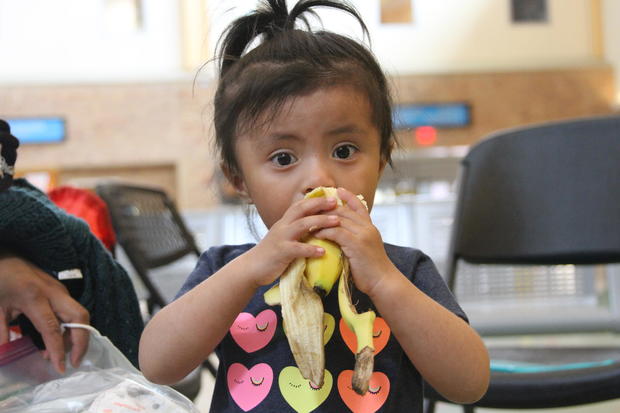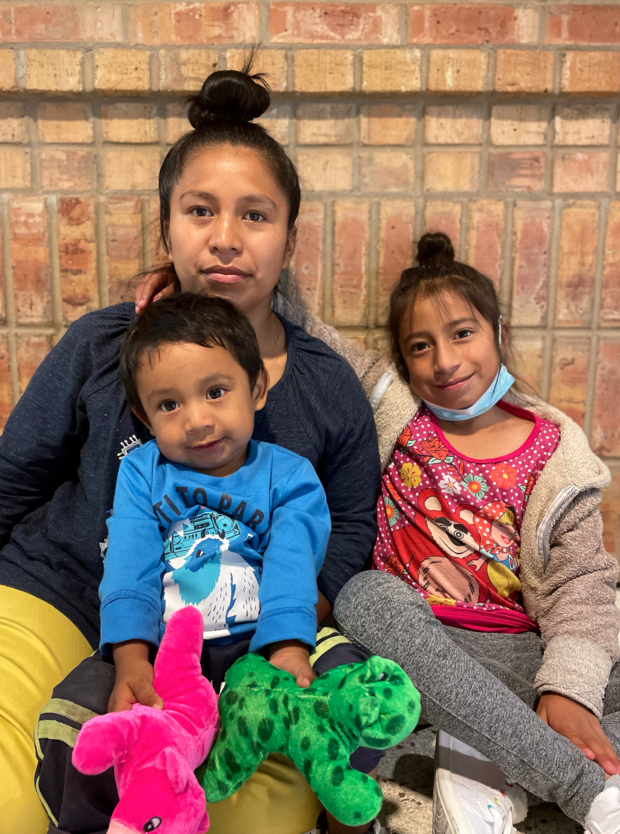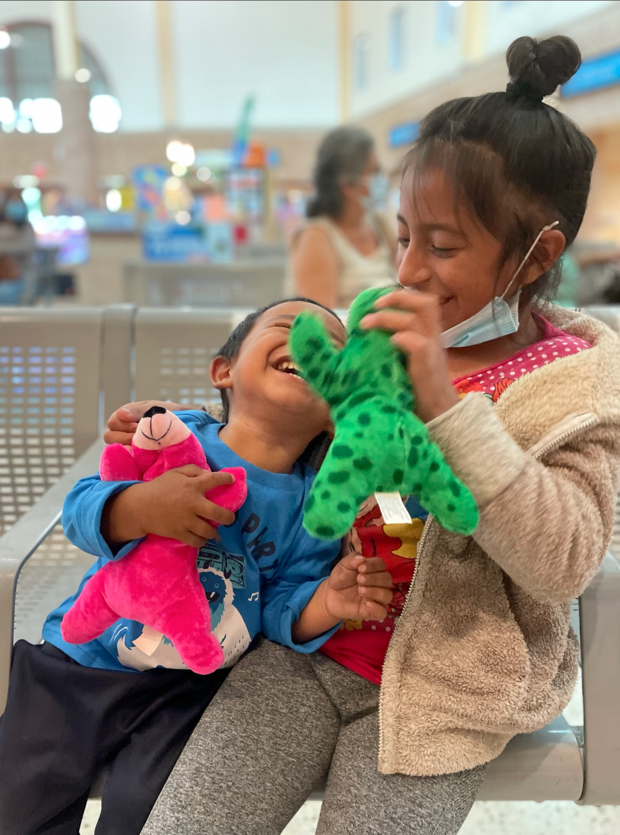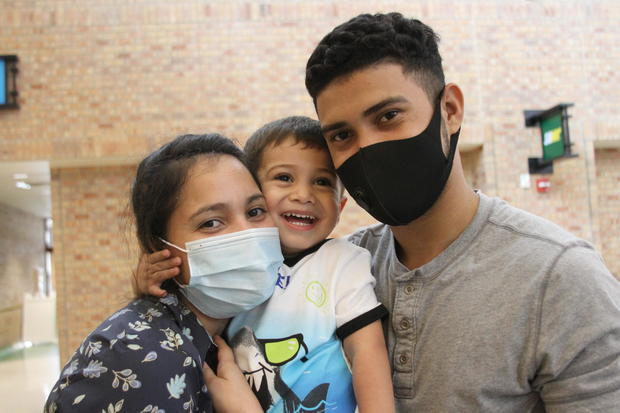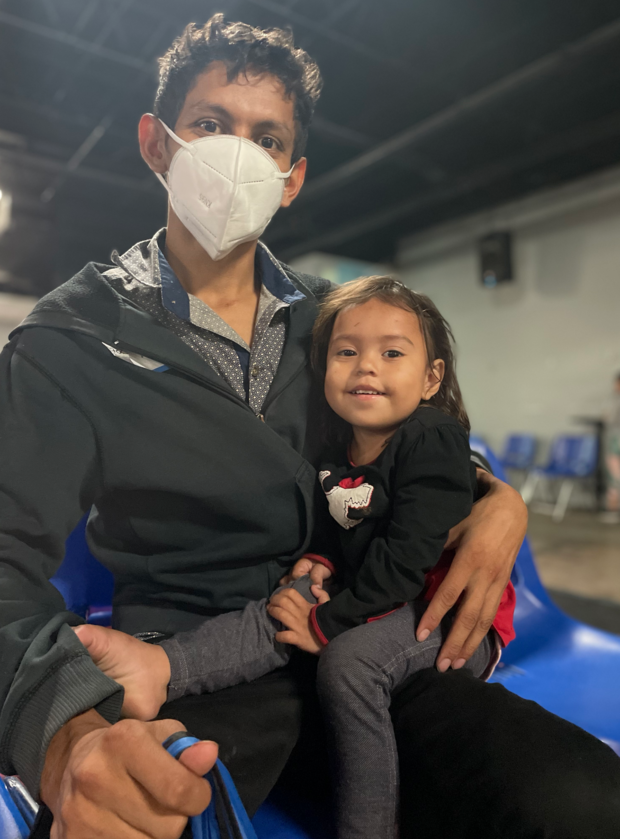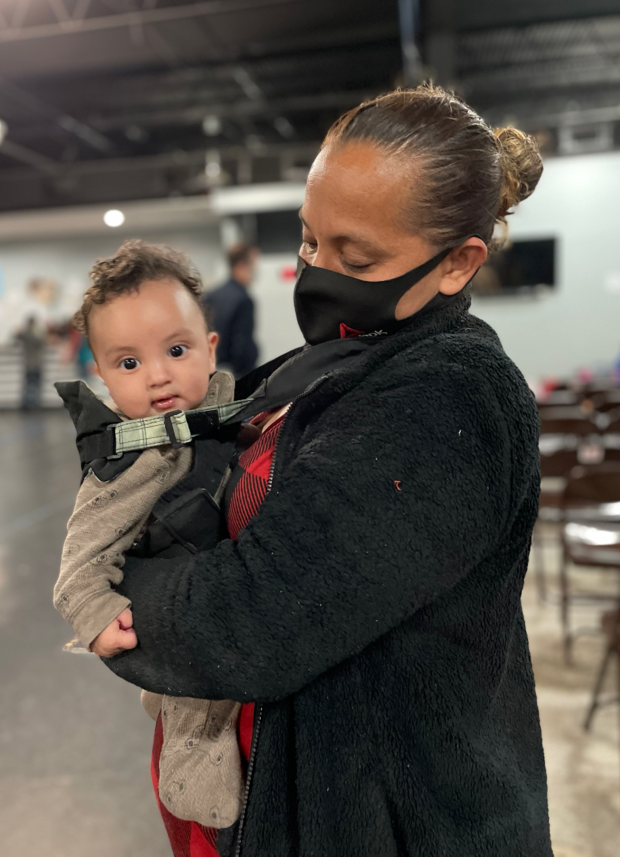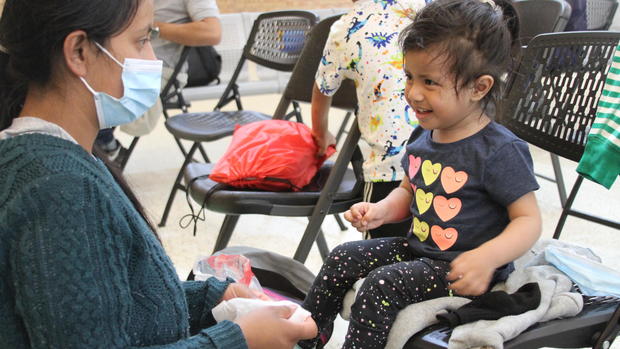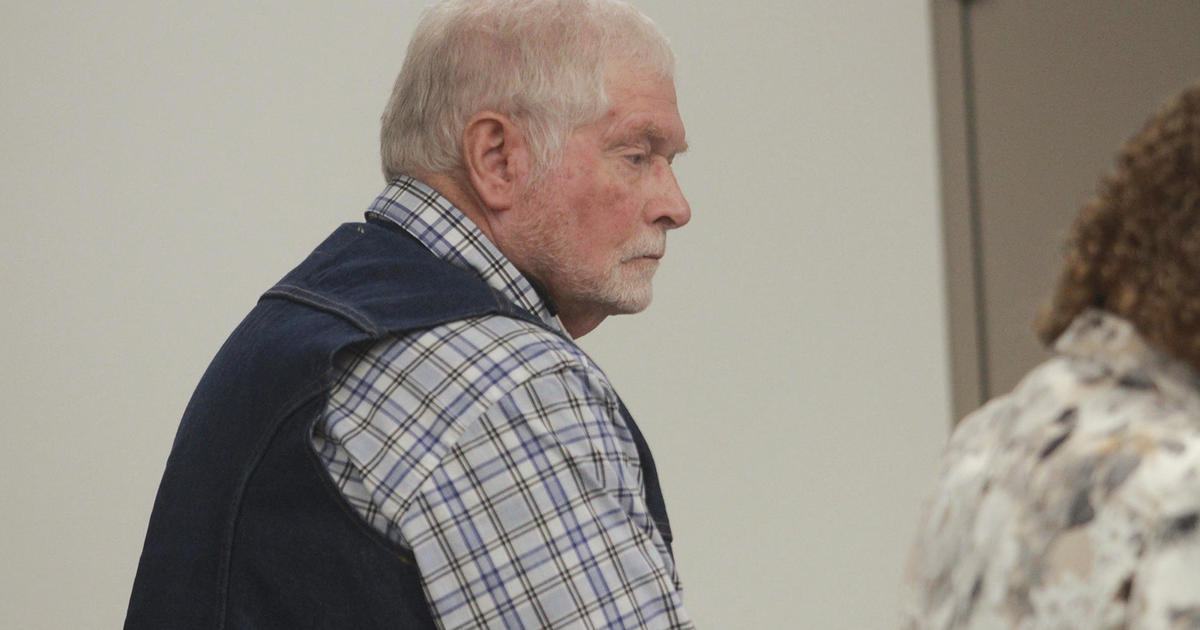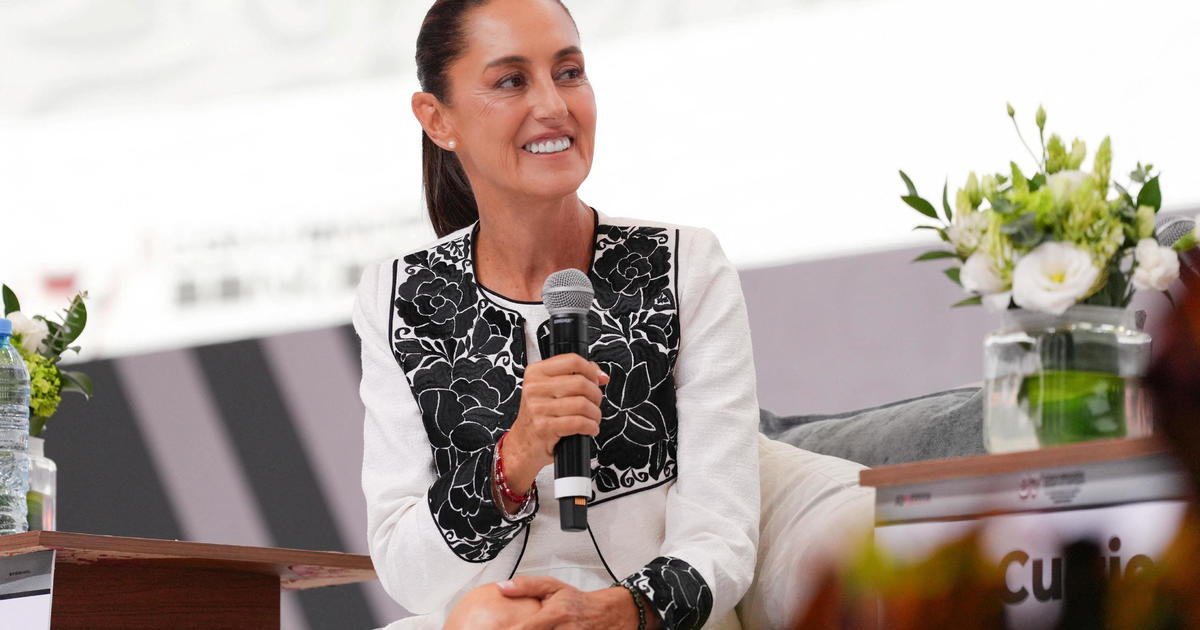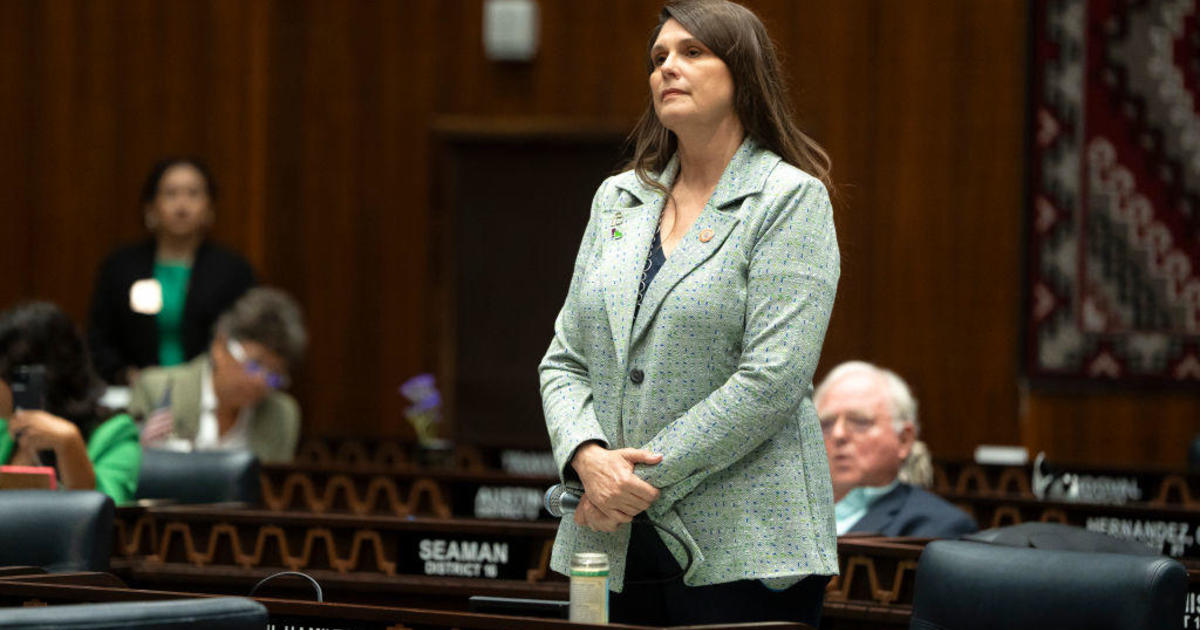Kidnapped, freezing and scared: Families recount their harrowing journeys across the border
Families have been coming to the south Texas border, fleeing some of the world's highest rates of poverty and crime in what are known as Central America's "Northern Triangle" — Guatemala, Honduras and El Salvador. As they've left behind gang violence, government corruption and extortion, they've brought their children along on what can be a dangerous journey.
Officials in the region have been told that once across the U.S. border, families with children 6 years old and younger should be released into the United States while they legally await immigration court hearings. Mexico is refusing to accept them, especially in Tamaulipas state, which borders the Rio Grande Valley, the busiest corridor for illegal crossings.
But families with older children are expelled, even if they have legitimate claims for humanitarian protection — under a public health code known as Title 42, invoked by the Trump administration last year on the grounds that asylum-seekers could spread COVID-19.
CBS News spoke to several families with young children currently pursuing asylum claims in the U.S. about why they decided to leave their home countries and what it was like to undertake the perilous and sometimes deadly journey to the southern U.S. border.
The Velasquez family
The Velasquez family's six-week journey started in Guatemala. This was their second attempt to cross into the U.S. Last time, they were expelled.
"Reaching the U.S. has been a nightmare. We suffered a lot. We rode in a small open boat during a storm for six hours. We were soaked. The kids were crying, sick, exhausted," the mother, Yeyli Velasquez, told CBS News. "At that point, I broke down. I was ready to give up. But my husband reminded me why we're doing this: So our children can get an education. So they can get a shot at a better life."
Yeyli said deciding to come to the U.S. was not easy, but they ended up having "no choice" but leave.
"We decided to come to the U.S. partly because our daughter had been severely sick back home. The economic situation is bad and we weren't making enough money to pay for her medical expenses," said the father, who worked as a taxi driver in Guatemala. "Every penny we made was spent on her illness. Staying in Guatemala meant she could die."
During the journey, Yeyli said, her family was abducted by a Mexican cartel for a day. Kidnappers repeatedly threatened women with rape and men with death if their family members didn't pay a ransom, she said. Children were not allowed to talk or cry. Her father had to pay the cartel about $1,000 for the family to be released.
Kidnapping is common along the migration route through Mexico. A 2020 report from Doctors Without Borders based on 480 interviews and testimonies of Central American migrants and asylum seekers shows that 57.3% of those interviewed were exposed to some type of violence, including cases of assault, extortion, torture and sexual assault.
Most cases go unreported, uninvestigated and unprosecuted. Some women even report preparing for the journey by taking birth control, Doctors Without Borders migrant project field coordinator Antonino Caradonna told CBS News: "They say it's the price to pay."
The Velasquez family spoke to CBS News about their experience in a Texas immigration detention center as they waited for their bus to Georgia, where they will be staying with Yeyli's father until a decision is made in their asylum case.
"This trip wasn't easy. We slept on the floor. Our girl was extremely sick and we feared for her life," the father told CBS News. "I know people sometimes don't understand how parents could put their kids through this. But we do it for them. Because we know that here, children are treasured."
The couple said they faced dire conditions in detention, describing poor hygiene, freezing temperatures and hostile behavior by some agents. They reiterated that "gringo" agents were nicer to children than Spanish-speaking ones.
"Women and men were separated. I couldn't see my daughter and my wife couldn't see our son," the father told CBS News. "This is the first time we've been reunited in days."
Yeyli said that if she had known the dangers this journey would've put her children through, she would've never left home.
"I thank God for giving us the opportunity to be here," she said. "But never again."
Jacqueline, Angelica and Dylan
Just hours after being released from Border Patrol custody, Jacqueline and her two kids sat at a bus station in Brownsville, Texas, waiting for the bus that would take them to North Carolina. They will stay with relatives until a judge makes a decision in their family's asylum case.
"I don't know what day or what time it is," Jacqueline told CBS News."You couldn't tell night from day in the facility. I'm not sure how long I was in there for."
A few days earlier, Jacqueline, her 9-year-old daughter Angelica and her year-old son Dylan crossed the Rio Grande river into the U.S., where they gave themselves up to federal officers and requested asylum.
Like hundreds of parents and children who cross in the early-morning darkness, they spent hours at an outdoor processing station next to the Rio Grande and slept under a bridge while they waited for agents to formally take them into custody.
Jacqueline is a single mother. She said her husband left her and their children, moved to Houston and started a new family while she was pregnant with their son.
"I'm all they have. In Guatemala, women aren't valued and men face daily gang violence. I want better for my children," Jacqueline said, her voice breaking into stifled sobs.
"I made the impossible decision between staying home or undertaking an extremely dangerous journey to America. I chose the latter so I know my children will come home to me safely. So they never have to face such a dilemma."
The hardest part of the two-month-long journey, she said, was not being able to provide food and water to her children when they needed it.
As Jacqueline dealt with paperwork and arranged for bus tickets, Angelica entertained her little brother by practicing in English how to say different colors visible in the room. She said she wanted to learn how to say all colors before starting school in North Carolina.
"Dylan cried a lot on the way here — especially when he was hungry. I tried to make him laugh so he'd forget," Angelica said. "I also cried once because we were walking a lot and my legs were hurting. But my mom said we could go to the beach in America. So I stopped crying."
Yenny, Mario and Fabian
Mario, 24, Yenny, 26 and their 2-year-old son Fabian were living a modest but peaceful life in Honduras — until, Mario said, his family started receiving death threats from gangs.
"You can't expect much support from the police in Honduras," Yenny said. "We were on our own."
Like most migrants, their decision to leave Central America was driven by a combination of factors, including lack of opportunities, violence and poverty: "It's not easy leaving everything behind — your friends, your family, your home. But it gets to a point where you just have to do what's best for your family and reach for something better, no matter how hard it is."
The couple said that while their 20-day-long journey to the United States was perilous, their family was one of the lucky ones.
"We went through a lot of emotions. Good and bad. But we're here now, and we thank God for it. Not everyone has been this lucky. A lot of the people didn't make it all the way here. Some got really hurt. Other were immediately sent back," said Mario. "We're feeling a lot of joy."
Mario said he hopes for prosperity and a better future for his family in the United States.
"We're not here to cause trouble. We're here to work hard because there's no hope left for us back home. The situation in Honduras was worse for us than the risks we faced by undertaking this journey. It hasn't been easy. But we'd do anything for our child."
Elmer and Stacy
Hours after being released from immigration custody for illegally crossing the Rio Grande, Elmer and his daughter Stacy sat at a Catholic Charities site in McAllen, Texas. There, they had been provided new clothes and toiletries following their journey from Nicaragua.
After testing positive for COVID-19, Elmer's wife was sent to a nearby hotel to quarantine — and Elmer didn't know when the family would be able to reunite.
"She keeps asking for her mom," he told CBS News. "The trip was rough. She's been through a lot. She just wants her mom."
During their journey to the U.S. southern border, Elmer said, a Mexican cartel kidnapped his wife and daughter for several days. Elmer said the cartel demanded a ransom and threatened both their lives if they didn't receive the money by the deadline.
"I was so worried. I don't think I would've left Nicaragua had I known the journey would put my family in so much danger," said Elmer. "They'll have to carry this with them forever."
Honduran mother and baby
One mother at the Catholic Charities of the Rio Grande Valley Humanitarian Respite Center carried her baby as she waited in line for fresh clothes, following a month-long journey from Honduras.
In a conversation with CBS News, she broke down in tears when asked about her journey to the U.S.
"It's just the two of us. It's been very difficult. But by the grace of God, we made it here," she said. "I'm just grateful my baby won't remember any of it."
